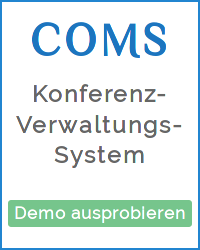Konferenzen zum Thema Soziologie in Frankreich
Wählen Sie ein Land aus
Belgien (1) Deutschland (1) Frankreich (1) Iran (1) Italien (5) Kroatien (1) Niederlande (1) Polen (1) Spanien (1) Taiwan (1) Türkei (1) Vereinigte Staaten (4) Zypern (1) Österreich (2)
Frankreich
1
PMB2022 — 7th International Conference on Population Balance Modelling
09. Mai 2022 - 11. Mai 2022 • Lyon, Frankreich
Einsendeschluss für Abstracts:
10. Jan 2022
Eintrags-ID:
1473080
Conference-Service.com stellt der Öffentlichkeit ein Kalendarium wichtiger Konferenzen, Symposien und sonstiger Tagungen im wissenschaftlich-technischen Bereich zur Verfügung. Obwohl das Verzeichnis mit großer Sorgfalt zusammengestellt und ständig aktualisiert wird, weisen wir auf die Möglichkeit von Fehlern ausdrücklich hin. Bitte vergewissern Sie sich immer beim Veranstalter, bevor Sie über die Teilnahme oder Nichtteilnahme an einer Konferenz entscheiden.
Kein Tracking | Keine Pop-ups | Keine Animationen
Stand vom 22. Februar 2022


